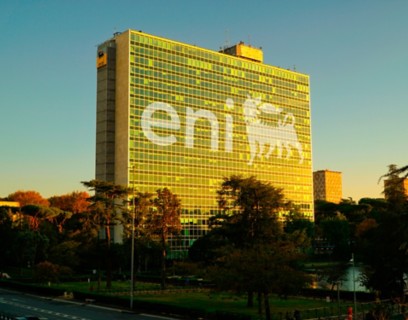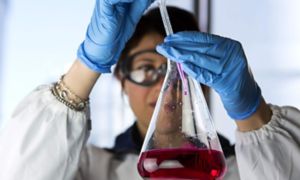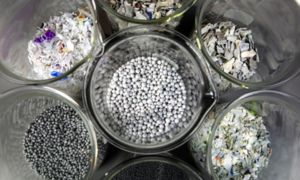
Or , our new artificial intelligence tool.
MyEni Login
Working at Versalis
Job opportunities in Eni’s chemical company, which is constantly evolving.

A strategy for sustainability and the circular economy
Versalis is Eni's chemical company. It's the largest Italian chemical company with an international presence and is strongly motivated to play a leading role in the transition to a sustainable growth model. Versalis integrates circularity principles into the management of its processes and products throughout their life cycle. The three pillars of its strategy are based on innovation and are:
- the diversification of raw materials, including renewable sources
- eco-design
- the development of polymer recycling technologies.
The Company has a product portfolio geared to a constantly evolving market. This is based on its industrial expertise, research and innovation, extensive range of proprietary technologies, extensive distribution network and after-sales service activities.
It also has a presence in the Asia-Pacific region, with offices in Shanghai, Mumbai (India) and Singapore. In the same region, LVE, a joint venture with South Korea's Lotte Chemical, aims to advance development in the field of elastomers. It also has sales offices in Houston (Texas) to strengthen its presence in the local market, through its Versalis Americas subsidiary, particularly in the field of elastomers. It has a presence in Ghana, the Congo and the Middle East with VPM, a JV with Mazrui Energy service, which plays an active role in the Energy sector, with its oilfield chemicals portfolio.
All opportunities in Versalis
Why work for Versalis and which positions and skills are most in demand?
Versalis is a constantly evolving business and a player on the international chemical industry scene. It is committed to producing renewable chemicals with strategic partners, to products that use cutting-edge technologies and to highly innovative research projects.
Versalis is looking for inquisitive and proactive people with STEM skills. Other soft skills that are essential for working in this field are the ability to work as part of a team and flexibility, which is important for embracing innovation and change.
The work areas vary from conventional chemicals to renewable chemicals.
What are some of the most in-demand roles? They are:
- Design and maintenance engineers for conventional plants and for renewable chemicals plants
- Operation and process technicians
- Marketing, sales and technical support for conventional and renewable chemicals
- Polymeric materials and biomass researchers
- Business development
- Chemical treatment technicians
The different locations in Italy have different work areas, see below:
- San Donato Milanese: head office and staff offices
- Crescentino: Invix bioethanol and disinfectants
- Mantua: intermediates, styrene and styrenics
- Ravenna: butadiene and elastomers
- Ferrara: elastomers and polyethylene
- Priolo: steam-crackers and aromatics
- Ragusa: polyethylene
- Brindisi: steam-crackers and polyethylene
- Porto Marghera: steam-crackers and aromatics
- Porto Torres: elastomers
- Rivalta Scrivia: renewable chemicals research centre
- Novara: renewable chemicals research centre
- Viggiano: oilfield chemicals
Renewable chemicals, a cornerstone of the transition
Renewable chemicals are an important part of Versalis's growth strategy, leading the way to a shift towards technologies that are in line with the principles of the bio-economy, and they are in synergy with conventional production. Versalis is committed to developing a model that takes the entire production cycle into account, in terms of the utilisation of renewable resources, reducingCO2 emissions and energy efficiency. The commitment to renewable chemicals focuses on new production processes that use renewable raw materials, such as solid biomass, to produce intermediates and polymers. Versalis is developing supply chains and technological platforms that cover various fields (agronomic, biochemical and chemical) through its dedicated Biotech Business Unit. It also aims to enhance integration with the local area that supplies the biomass, offering growth opportunities.
Versalis carries out research activities across the entire renewable chemicals supply chain at its centres in Novara (laboratory scale) and Rivalta Scrivia (Alessandria), for pilot-scale research on saccharification technology from lignocellulosic biomass to second-generation (non-edible) sugars and the subsequent fermentation to bioethanol. In Porto Torres, research is conducted by the Matrìca research centre, a renewable chemicals joint venture with Novamont, to support site-specific production and various other projects.
A project; a range of Invix® disinfectants from renewable chemicals
Versalis is busy restarting bioethanol production In Crescentino (Vercelli).
In response to the covid-19 health emergency, Versalis made its expertise and Crescentino facilities available to produce a range of disinfectants, called Invix®, using ethanol from plant raw materials as the active ingredient.
The disinfectant is medical-surgical grade and was developed from a World Health Organisation formulation and authorised by the Italian Ministry of Health.
Versalis Biotech's research centres in Rivalta Scrivia (Alessandria) and Novara are working towards further developments in the production of a full range of renewable products from fermentation, such as bio-oils for the bio-refinery, fully biodegradable polymers (PHA polyhydroxyalkanoates), intermediates for bio-polymers and bio-chemicals, all from second-generation sugars.



















